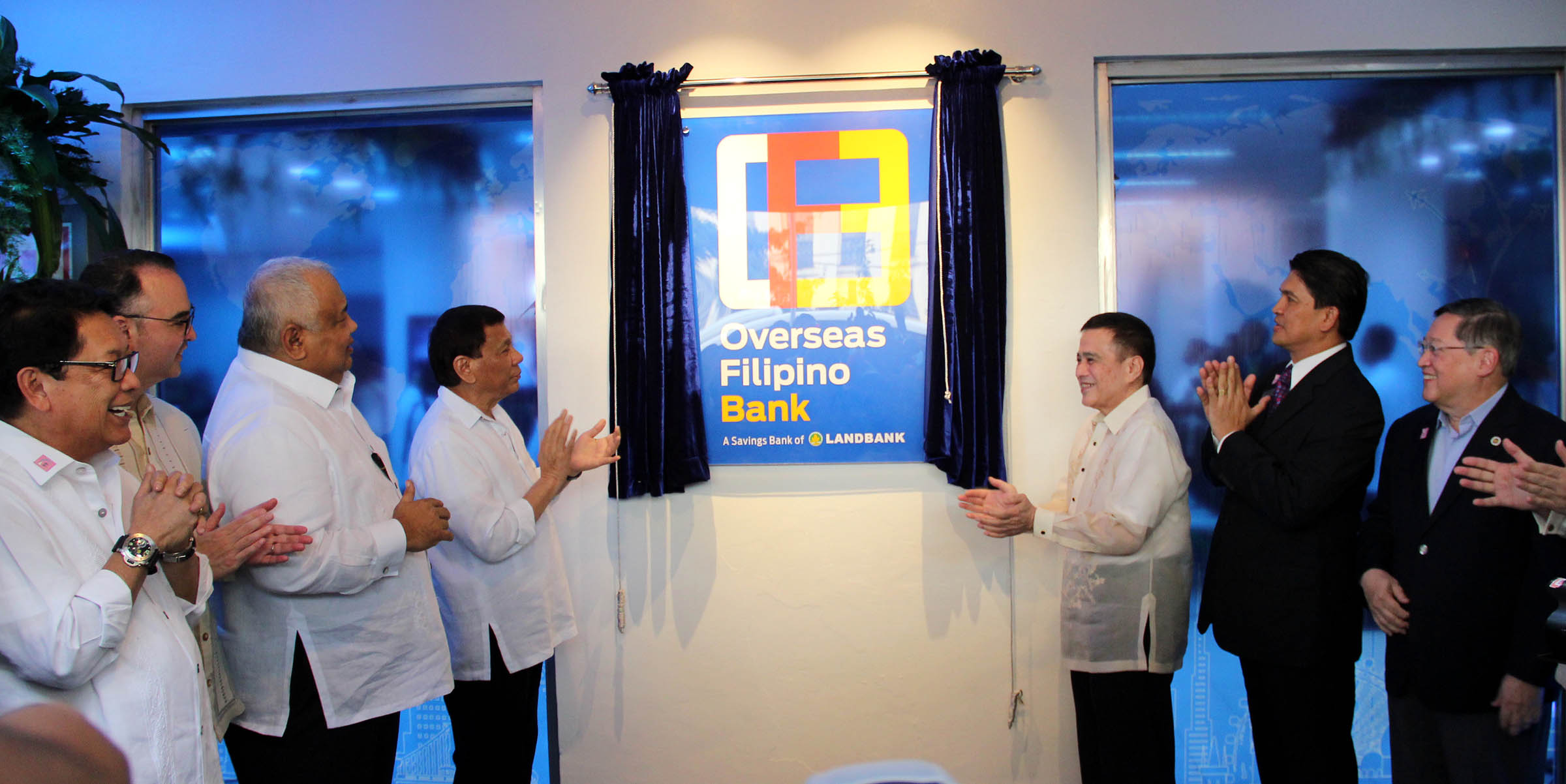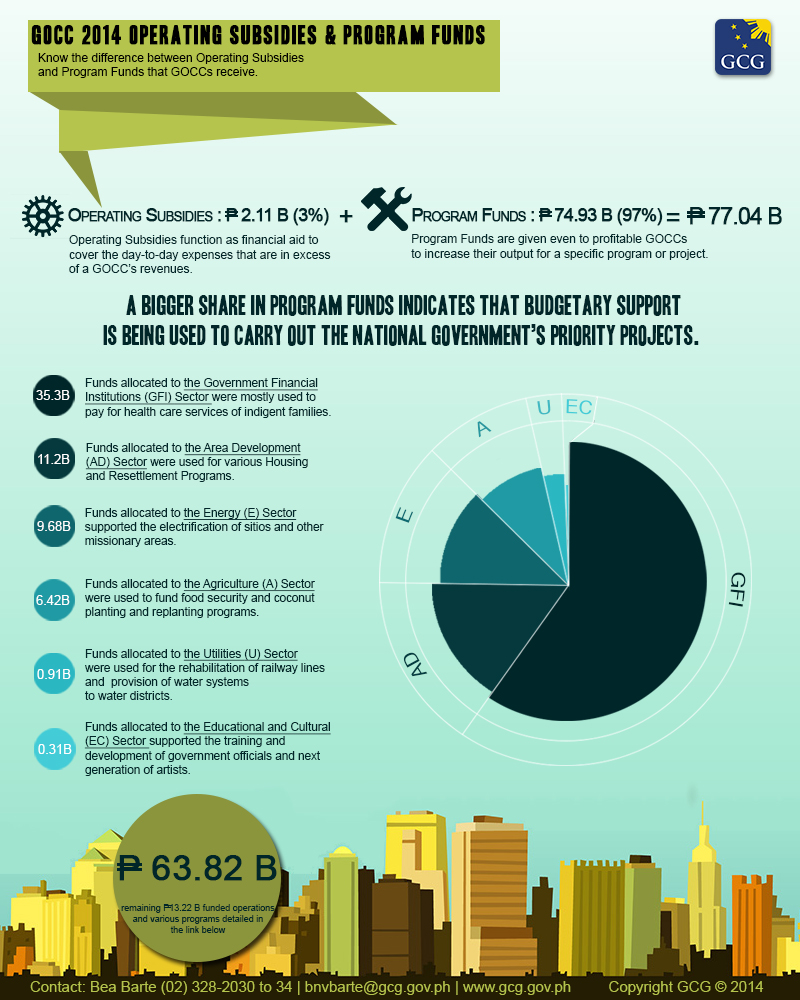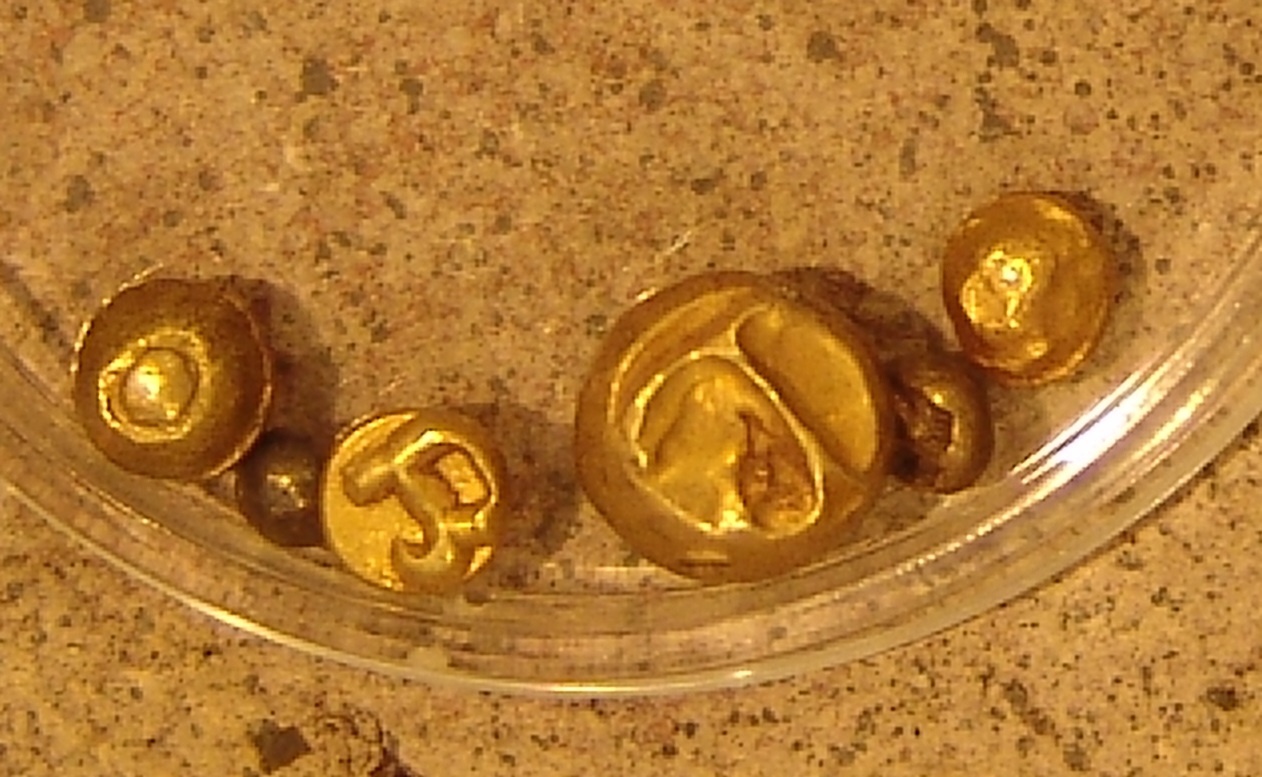|
LandBank
Land Bank of the Philippines (LBP; often referred to simply as LandBank), is a government-owned bank in the Philippines with a special focus on serving the needs of farmers and fishermen. While it provides the services of a universal bank, it is officially classified as a "specialized government bank" with a universal banking license. LandBank is the second largest bank in the Philippines in terms of assets and is the largest government-owned bank. It is also one of the biggest government-owned and controlled corporations and banking institutions in the Philippines along with the Development Bank of the Philippines (DBP), Overseas Filipino Bank (OFW Bank), and Al-Amanah Islamic Investment Bank of the Philippines. Unlike most Philippine banks, LandBank has an extensive rural branch network with 409 Branches and Extension Offices, 46 Lending Centers and 2,188 ATMs (as of February 2020). It services many rural sector clients in areas where banking is either limited to ru ... [...More Info...] [...Related Items...] OR: [Wikipedia] [Google] [Baidu] |
Overseas Filipino Bank
The Overseas Filipino Bank (OFBank) is the state-owned digital-only, branchless bank in the Philippines. Formerly known as the Philippine Postal Savings Bank (PPSB) or PostBank, it is the smallest of the Philippines' three state-owned banks (the others being Land Bank of the Philippines and Development Bank of the Philippines), and is the 16th largest thrift banks in terms of assets. Its services are catered to the needs of Overseas Filipinos (OFs), Overseas Filipino Worker (OFWs), and their families or beneficiaries. Since 2018, it has been a subsidiary of LandBank. History Established as Philippine Postal Savings Bank in 1906, the bank was closed in 1976 as a result of competition with privately owned banks, but was reopened in 1994 pursuant to the provisions of Republic Act No. 7354, the charter of the Philippine Postal Corporation. In 2013, the bank rebranded its operations as "Postbank". Despite the legal affiliation, the PPSB is governed separately from PhilPost. On N ... [...More Info...] [...Related Items...] OR: [Wikipedia] [Google] [Baidu] |
Malate, Manila
Malate is a district of Manila, Philippines. Together with the district of Ermita, it serves as Manila's center for commerce and tourism. Etymology The name ''Malate'' is believed to be derived from a corruption of the Tagalog word ''maalat'' ("salty"). Legends known that when two Spanish soldiers asked a woman about the name of the place, the lady's little brother, tasted salt, shouted "Maalat, Ate!" ("Sister, it is salty!"). The Spanish man misheard it, and used the words as the place's name. However this a common modern Filipino 'folk etymology' mechanism (and commonly employed into many Philippine place name etymologies today) and has no historical basis (eg. the term "ate" was not adopted into Tagalog vernacular from Minnan "achi" until much later into the 19th c). The actual origin of Malate indeed came from "maalat" but for geographical reasons. Antonio Morga writing in 1609: "Manila has two drives for recreation. One is by land, along the point called Nuestra Señora ... [...More Info...] [...Related Items...] OR: [Wikipedia] [Google] [Baidu] |
Government-owned And Controlled Corporation
In the Philippines, a government-owned and controlled corporation (GOCC), sometimes with an "and/or", is a state-owned enterprise that conducts both commercial and non-commercial activity. Examples of the latter would be the Government Service Insurance System (GSIS), a social security system for government employees. There are over 200 GOCCs as of 2020. GOCCs both receive subsidies and pay dividends to the national government. Under the GOCC Governance Act (Republic Act No. 10149; Government Owned and Controlled Corporations (GOCC) Governance Act of 2011), GOCCs are overseen by the Governance Commission for Government-Owned or Controlled Corporations (GCG). The Governance Commission is the "government's central advisory and oversight body over the public corporate sector" according to the Official Gazette of the Philippine government. The Governance Commission among other duties prepares for the president of the Philippines a shortlist of candidates for appointment by the presid ... [...More Info...] [...Related Items...] OR: [Wikipedia] [Google] [Baidu] |
Government-owned And Controlled Corporation
In the Philippines, a government-owned and controlled corporation (GOCC), sometimes with an "and/or", is a state-owned enterprise that conducts both commercial and non-commercial activity. Examples of the latter would be the Government Service Insurance System (GSIS), a social security system for government employees. There are over 200 GOCCs as of 2020. GOCCs both receive subsidies and pay dividends to the national government. Under the GOCC Governance Act (Republic Act No. 10149; Government Owned and Controlled Corporations (GOCC) Governance Act of 2011), GOCCs are overseen by the Governance Commission for Government-Owned or Controlled Corporations (GCG). The Governance Commission is the "government's central advisory and oversight body over the public corporate sector" according to the Official Gazette of the Philippine government. The Governance Commission among other duties prepares for the president of the Philippines a shortlist of candidates for appointment by the presid ... [...More Info...] [...Related Items...] OR: [Wikipedia] [Google] [Baidu] |
State-owned
State ownership, also called government ownership and public ownership, is the ownership of an industry, asset, or enterprise by the state or a public body representing a community, as opposed to an individual or private party. Public ownership specifically refers to industries selling goods and services to consumers and differs from public goods and government services financed out of a government's general budget. Public ownership can take place at the national, regional, local, or municipal levels of government; or can refer to non-governmental public ownership vested in autonomous public enterprises. Public ownership is one of the three major forms of property ownership, differentiated from private, collective/cooperative, and common ownership. In market-based economies, state-owned assets are often managed and operated as joint-stock corporations with a government owning all or a controlling stake of the company's shares. This form is often referred to as a state-o ... [...More Info...] [...Related Items...] OR: [Wikipedia] [Google] [Baidu] |
Philippine Peso
The Philippine peso, also referred to by its Tagalog name ''piso'' (Philippine English: , , plural pesos; tl, piso ; sign: ₱; code: PHP), is the official currency of the Philippines. It is subdivided into 100 ''sentimo'', also called centavos. The Philippine peso sign is denoted by the symbol "₱", introduced under American rule in place of the original peso sign "$" used throughout Spanish America. Alternative symbols used are "PHP", "PhP", "Php", or just "P". The monetary policy of the Philippines is conducted by the Bangko Sentral ng Pilipinas (BSP), established on July 3, 1993, as its central bank. It produces the country's banknotes and coins at its Security Plant Complex, which is set to move to New Clark City in Capas, Tarlac."Overview of the BSP" Bangko Sentral ng Pilipinas (BSP) Official Website. Retrieved on October 1, ... [...More Info...] [...Related Items...] OR: [Wikipedia] [Google] [Baidu] |
Amortization (business)
In accounting, amortization refers to expensing the acquisition cost minus the residual value of intangible assets in a systematic manner over their estimated "useful economic lives" so as to reflect their consumption, expiry, and obsolescence, or other decline in value as a result of use or the passage of time. The term amortization can also refer to the completion of that process, as in "the amortization of the tower was expected in 1734". Depreciation is a corresponding concept for tangible assets. Methodologies for allocating amortization to each accounting period are generally the same as these for depreciation. However, many intangible assets such as goodwill or certain brands may be deemed to have an indefinite useful life and are therefore not subject to amortization (although goodwill is subjected to an impairment test every year). While theoretically amortization is used to account for the decreasing value of an intangible asset over its useful life, in practice many ... [...More Info...] [...Related Items...] OR: [Wikipedia] [Google] [Baidu] |
Cooperative
A cooperative (also known as co-operative, co-op, or coop) is "an autonomous association of persons united voluntarily to meet their common economic, social and cultural needs and aspirations through a jointly owned and democratically-controlled enterprise".Statement on the Cooperative Identity. ''.'' Cooperatives are democratically controlled by their members, with each member having one vote in electing the board of directors. Cooperatives may include: * businesses owned and managed by the people who consume th ... [...More Info...] [...Related Items...] OR: [Wikipedia] [Google] [Baidu] |
Financial Capital
Financial capital (also simply known as capital or equity in finance, accounting and economics) is any economic resource measured in terms of money used by entrepreneurs and businesses to buy what they need to make their products or to provide their services to the sector of the economy upon which their operation is based, ''e.g.'', retail, corporate, investment banking, etc. In other words, financial capital is internal retained earnings generated by the entity or funds provided by lenders (and investors) to businesses in order to purchase real capital equipment or services for producing new goods and/or services. In contrast, real capital (or economic capital) comprises physical goods that assist in the production of other goods and services, e.g. shovels for gravediggers, sewing machines for tailors, or machinery and tooling for factories. IFRS concepts of capital maintenance ''Financial capital'' generally refers to saved-up financial wealth, especially that used in or ... [...More Info...] [...Related Items...] OR: [Wikipedia] [Google] [Baidu] |
Union Bank Of The Philippines
The Union Bank of the Philippines, Inc., more commonly known as UnionBank, is one of the universal banks in the Philippines and the ninth largest bank in the country by assets. UnionBank is a joint consortium among the Aboitiz Group, Insular Life and Social Security System. It started operations in 1981 and became a commercial bank on January 19, 1982. In July 1992, UnionBank was granted the license to operate as a universal bank. History Founding The bank was originally incorporated as “Union Savings and Mortgage Bank” on August 16, 1968. After the initial public offering the bank's shares were listed at the Philippine Stock Exchange (PSE) on June 29, 1992. Licensing as universal bank On July 15, 1992, the bank was granted the license to operate as a universal bank in the Philippines and the bank was changed its current name to Union Bank of the Philippines (UBP). Mergers and acquisitions In 1993, UnionBank merged with International Corporate Bank ("Interbank") ... [...More Info...] [...Related Items...] OR: [Wikipedia] [Google] [Baidu] |
Credit (finance)
Credit (from Latin verb ''credit'', meaning "one believes") is the trust which allows one party to provide money or resources to another party wherein the second party does not reimburse the first party immediately (thereby generating a debt), but promises either to repay or return those resources (or other materials of equal value) at a later date. In other words, credit is a method of making reciprocity formal, legally enforceable, and extensible to a large group of unrelated people. The resources provided may be financial (e.g. granting a loan), or they may consist of goods or services (e.g. consumer credit). Credit encompasses any form of deferred payment. Credit is extended by a creditor, also known as a lender, to a debtor, also known as a borrower. Etymology The term "credit" was first used in English in the 1520s. The term came "from Middle French crédit (15c.) "belief, trust," from Italian credito, from Latin creditum "a loan, thing entrusted to another," from pa ... [...More Info...] [...Related Items...] OR: [Wikipedia] [Google] [Baidu] |
Ferdinand Marcos
Ferdinand Emmanuel Edralin Marcos Sr. ( , , ; September 11, 1917 – September 28, 1989) was a Filipino politician, lawyer, dictator, and kleptocrat who was the 10th president of the Philippines from 1965 to 1986. He ruled under martial law from 1972 until 1981 p. 189. and kept most of his martial law powers until he was deposed in 1986, branding his rule as "constitutional authoritarianism" under his Kilusang Bagong Lipunan (New Society Movement). One of the most controversial leaders of the 20th century, Marcos's rule was infamous for its corruption, extravagance, and brutality. Marcos gained political success by claiming to have been the "most decorated war hero in the Philippines", but many of his claims have been found to be false, with United States Army documents describing his wartime claims as "fraudulent" and "absurd". After World War II, he became a lawyer then served in the Philippine House of Representatives from 1949 to 1959 and the Philippine Senate from ... [...More Info...] [...Related Items...] OR: [Wikipedia] [Google] [Baidu] |








